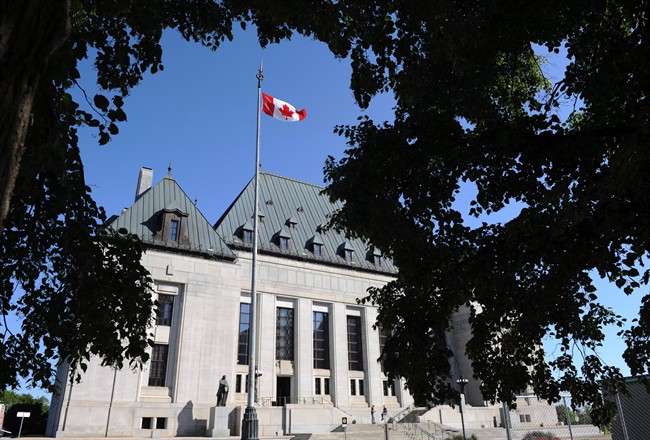OTTAWA – The Supreme Court of Canada has upheld a lower court’s decision that kept a Montreal drug dealer from being transferred to Canada while he was serving time in the United States.

In doing so, the court agreed that it falls to the discretion of the federal public safety minister to balance a Canadian’s right to return to Canada against other issues, such as national security.
The case involved Italian-Canadian Pierino Divito, who has a lengthy criminal record that stretches back to the early 1960s. Born in Italy in 1937, Divito moved to Canada when he was 16 and became a Canadian citizen in 1980.
Divito began serving a prison sentence in the mid-1990s as part of one of the largest drug-trafficking cases in Canadian history. He was sentenced to 18 years for trying to import and traffic more than 5,400 kilograms of cocaine into Nova Scotia and New Brunswick.
After serving almost two-thirds of his sentence, Divito was transferred to the United States in June 2005 to face separate drug charges.
In March 2006, an American court sentenced Divito to seven-and-a-half years in prison.
The Harper government twice rejected applications by Divito to be transferred back to a Canadian jail, even though the U.S. approved the transfer requests. The government said his links to organized crime could pose a threat to Canadians.
- Life in the forest: How Stanley Park’s longest resident survived a changing landscape
- ‘They knew’: Victims of sexual abuse by Ontario youth leader sue Anglican Church
- Roll Up To Win? Tim Hortons says $55K boat win email was ‘human error’
- Carbon rebate labelling in bank deposits fuelling confusion, minister says
Divito’s lawyer argued that because the United States agreed to the prison transfer, Divito had the right as a Canadian citizen to return to Canada and the federal government had no discretion to refuse his entry.
A ruling in Divito’s favour might have had implications on future prison-transfer requests by Canadian citizens serving time in other countries.
However, the Supreme Court ruled Thursday that the government was well within its rights to refuse Divito’s entry to Canada.
“Canadian citizens undoubtedly have a right to enter Canada, but Canadian citizens who are lawfully incarcerated in a foreign jurisdiction cannot leave their prison, let alone leave to come to Canada,” the court wrote.
“What makes the entry to Canada possible is the (International Transfer of Offenders Act). But this possibility does not thereby create a constitutionally protected right to leave a foreign prison and enter Canada whenever a foreign jurisdiction consents to the transfer.
“Nor does it impose a duty on the Canadian government to permit all such citizens to serve their foreign sentences in Canada.”
Thursday’s Supreme Court decision no longer has any bearing on Divito, who has served his sentence and is now back in Canada.
His lawyer did not immediately return requests for comment.



Comments